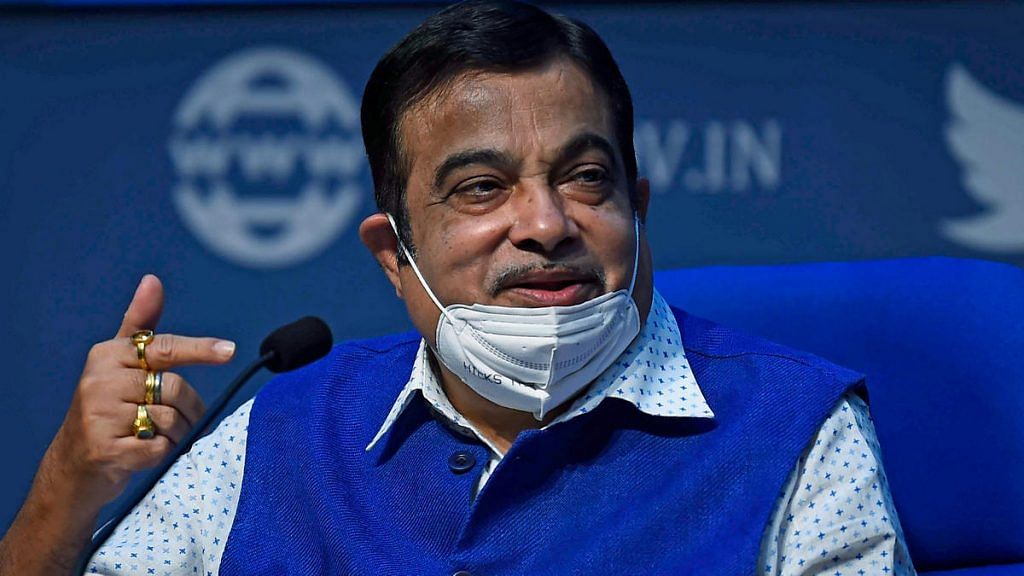New Delhi: Since the deadly clash between Indian and Chinese troops at Galwan Valley on 15 June, ministers in the Narendra Modi government have been speaking in different voices on cutting trade ties with the neighbouring country.
As calls for boycotting Chinese goods continue to grow across the country, the ministers’ statements have highlighted the need for a comprehensive policy, which has not been announced yet.
Sources said recent statements by some Union ministers are likely knee-jerk reactions, but they have added to the confusion on trade and commerce with China.
China has the largest share in India’s imports, followed by the US and the oil-producing countries of the UAE and Saudi Arabia. Nearly 14 per cent of India’s imports in 2018-19 were from China, valued at $70 billion. This increased marginally in the April-January period of 2019-20, trade data showed.
In comparison, the US’ share in India’s imports was at around 7 per cent in 2018-19, and at 7.5 per cent in the first ten months of 2019-20.
Also read: Breaking TV sets to boycotting Chinese goods — India’s RWAs wage ‘war’ against Xi’s China
Gadkari contradicts others, then clarifies
Last week, Union Road Transport and MSMEs minister Nitin Gadkari wrote to Finance Minister Nirmala Sitharaman and Commerce Minister Piyush Goyal to intervene and expedite the release of shipments from China stuck at Indian ports.
Addressing a webinar Sunday, Gadkari said not giving customs clearance for shipments from China that have already been imported and paid for by firms will harm Indian entrepreneurs, as they will incur huge losses.
The minister’s statement contradicted the push for self-reliance and generated a controversy, forcing him to subsequently tweet his clarification.
“I am among the strongest proponents of Atma Nirbhar Bharat. Anyone who is even slightly acquainted with me would know about my passion and work towards supporting as well as encouraging Make in India,” Gadkari tweeted.
“With regard to stopping of goods on Indian ports, it was purely context specific, in reply to one very specific question by the anchor. Later, I have also discovered that there was no arbitrary stopping of goods!”
With regard to stopping of goods on Indian ports, it was purely context specific, in reply to one very specific question by the anchor. Later, I have also discovered that there was no arbitrary stopping of goods!
— Nitin Gadkari (@nitin_gadkari) June 28, 2020
A day before Gadkari’s statement, Power Minister R.K. Singh had said India will examine all power equipment imported from China, amid concerns that China could use malware and ‘Trojan horses’ to disrupt the electricity grid. Singh had told PTI in an interview that the MNRE is considering customs duties on some solar power equipment from 1 August, which he said would help India become self-reliant.
On 18 June, Consumer Affairs Minister Ram Vilas Paswan had also called for a boycott of all goods made in China, and said there would be strict quality control and his ministry would soon come out with rules to block the import of “substandard products” from China. Paswan said he also told his ministry to avoid buying stationary items from companies who sell Made in China products.
“It seems like a competition where each minister is coming up with ideas to make India self-reliant, and in the process prove his patriotism,” said a retired civil servant, who did not want to be named. “Everybody in the government is making his own assumption about how to become self-reliant vis-a-vis trade with China.”
Also read: Close down restaurants selling Chinese food, boycott China-made items: Ramdas Athawale
Push for self-reliance
Sources say individual arms like the Department for Promotion of Industry and Internal Trade and the Ministry of Agriculture are working to ensure India’s self-reliance or aatmanirbharta, which PM Modi has made a push for.
“As of now, there is no policy blueprint on how to go about it. Different ministries are coming up with their own proposals,” said a senior government official, who did not want to be named.
The DPIIT, for instance, has directed online retailers to ensure that products sold on their platforms display the label of the country of origin.
Government sources said the Union cabinet’s 3 June decision to set up an empowered group of secretaries and project development cells in each ministry and department for attracting investments in India will help in the process, though the decision was taken before the Galwan Valley clash.
The empowered group’s mandate is to attract increased investments into India and provide investment support and facilitation to global investors.
Railway projects
The first sign of movement against China in the public sector was the termination of a railway signalling contract given to a Chinese company for the Eastern Dedicated Freight Corridor, as ThePrint reported on 18 June.
However, Dedicated Freight Corridor Corporation of India MD Anurag Sachan had told ThePrint that the contract would be cancelled due to poor progress, not due to the tensions and conflict at the Line of Actual Control.
RSS-affiliate Swadeshi Jagran Manch, known for its aggressive anti-China stance, had also jumped on the bandwagon, demanding the Modi government cancel the bid of China’s Shanghai Tunnel Engineering Company Limited, the lowest bidder for the construction of the underground stretch of Delhi-Meerut Regional Rapid Transit System project.
The government, however, denied any move to cancel the bid, saying in an official statement: “The tender is under process and yet to be finalised. Please note that the ADB/World Bank/multi-lateral procurement guidelines do not allow discrimination among firms/countries.”
Also read: VHP and its youth wings to begin ‘boycott China’ campaign, ‘expose’ its hand in Covid outbreak
